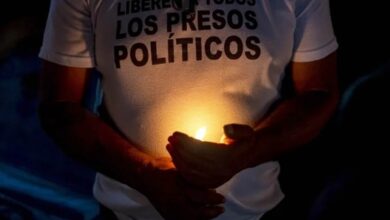LGBT+ cinema: another pride for this month
Listen to this article
Since June is gay pride month, we want to remember some films from decades ago on this subject, when talking about it was still a taboo
Leer en español: Cine LGBT: un orgullo más para este mes
June 28 marks the 50th anniversary of what is now the most important date for the LGBT + community. This is now the International Gay Pride Day and commemorates the riots in Stonewall.
In 1969, demonstrations were held in New York of people from this community who demanded to be able to demonstrate their sexual affinity in public, without being coerced by the authorities. The current system persecuted homosexuals and punished them, so this day a movement began to protect and guarantee the rights of anyone who feels identified with the LGBT + community, which includes homosexuals, bisexuals, transgendered and more persons that identify with other gender identities and sexual orientation.
You may be interested: Equal marriage is a fact in Ecuador
In the world of cinema, LGBT pride, or at least the subject itself, has been treated as a way of expressing oneself and making amends to the community. Films such as Moonlight, winner of the Oscar for best film in 2016, or Call me by your name (2017) have attracted attention for treating the issue of homosexuality without making a fuss, but as a situation that every day is more present and that has been violated for a long time.
It could be said that it seeks to break these taboos step by step and normalize the issue, while society has tried to normalize and ensure the rights of the people of this community.
However, years ago, this was not the case neither in society nor in films. Everything that had to do with the LGBT + community and their rights was about hiding and, as far as the film industry was concerned, it was judged that issues like that could not be treated in films, always with the argument that it promoted homosexuality.
Therefore, in the framework of this month and the demonstrations that will take place on Saturday, June 29, in many cities around the world, we remember some films that once had a controversial component when dealing with this issue when it was still taboo.
Ma vie en rose (1997)
My life in pink is a French film whose main character is Ludovic, a 7-year-old boy who begins to realize that he does not want to be a boy, but a girl. The film shows the difficulties experienced by his family and his surroundings when they see that Ludovic is changing in such harmless things as the color of his clothes and the toys he wants to play with.
If even the transgender issue is complex because of the lack of rights, possibilities and the risk that is run simply by saying that someone is not comfortable with the genre he was born with, in 1997 legal rights were much more behind.
You may be interested: The programs of our childhood return!
The Boys in the Band (1970)
This film not only deals openly with the issue of homosexuality at a time when it was as conflictive as it was in the 60s and 70s, just one year after the Stonewall riots. In addition, in the film, a heterosexual is shown as a 'weirdo' when Alan, a straight man, arrives at the home of his friend Michael, who is gay, in the middle of a meeting where everyone is homosexual.
At the moment it is considered a queer 'cult' film, that is to say, one of the most emblematic in the cinema that exalts this movement. Nevertheless, at the time it had R classification (that means restricted), due to its homosexual content.
The Children's hour (1961)
The renowned actress Audrey Hepburn is part of the cast of this film, which talks about a love relationship between two women in the middle of a prestigious school. The film is based on a 1936 play, which in turn is based on a true story of the previous century, at which time homosexuality was taken as a disease and was an unnameable subject.
In the story, two teachers at the school are accused by a student of having a love relationship. This is one of the first films that explicitly spoke about the subject, since in previous opportunities films like Hitchcock's Rope(1948) suggested the theme, but in a very careful and censored way. In addition, at the time, the film was revolutionary because the original work had to change its script so that it was not about homosexuality but about adultery, another subject that, although a taboo, was not so forbidden.
LatinAmerican Post | Julian Suárez
Translated from "Cine LGBT: un orgullo más para este mes"






